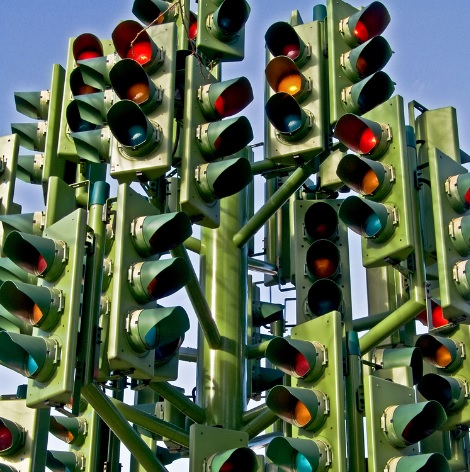I’ve decided not to receive any more notifications on my phones. No, I’m not a Luddite. Just someone who’s escaping the noise and anxiety caused by a mostly broken system.
That’s right — I’ve officially opted out of the mess that is smartphone notifications. No more chimes reminding me that I’m scheduled to attend a meeting in 20 minutes. No more winking LEDs teasing the promise of an email. No more Google Now cards. Nothing.
It’s quiet.
No, it’s blissful.
My daily rhythms for the past 10 years have been largely dictated by smart notifications. I was drawn to my Blackberry’s blinking red light. I loved using automation apps like Tasker to turn my good ol’ Nexus One’s LED into my own personal North Church tower (one flash if by land, two if by sea). I was first in line for smartwatches both old and new. I couldn’t wait to get my hands on a Google Glass.
But something happened along the way. What were once mostly welcome, generally serendipitous interruptions suddenly became unbearable. I simply became unable to deal.
I first suspected that I was losing my faculties. But I wasn’t losing my appetite for information. I still checked and posted to several social networks, banged out dozens of emails a day, read everything in sight. No, I was fine.
If it wasn’t me, it must have been the volume of messages I was dealing with, right? Unfortunately, no. I actually received fewer messages (email, calendar, SMS, Twitter, Facebook, Reddit, etc.) in 2013 than I did in 2011 or 2012 — two years when I was perfectly able to cope.
What’s changed? First off, there’s been a real increase in the number of apps that publish notifications. My lightly-used iPad has more than 25 apps that can send notifications to the Notification Center. My iPhone? More than 40. My Android? 58. Ugh.
Today’s apps aren’t shy about pinging us. In a recent week, I received more than 300 (unacknowledged) notifications on my Android and more than 140 on my iPhone. Double ugh.
I still believe mobile apps have the power to make us superhuman: that is, if they deliver the right information at the right place and time.
Unfortunately, few (if any) smartphone apps today are “smart” enough to deliver on this promise. Instead of giving us exactly what we’re looking for, apps overwhelm us with too many unwanted notifications — or force us to click, check-in, or search for the information we really need.
Apps need to know more about us, the users humans they serve. They need to know what we’re up to, where we’re headed, where we’ve been — and most importantly, what information we want them to get for us.
Tomorrow’s apps will use the sensors already embedded in our smartphones and wearable device to understand how they can best enhance our experience. This means the notifications I receive will be the ones I really want. And on that day, I, for one, will welcome our new helpful, intimately personal notification overlords.
Just imagine how much more useful our gadgets could become in the near future if they knew a little more about us as humans:
What if my phone knew — by talking to my smart fridge — that I’m down to the last bottle of my favorite beer (Shiner Bock), and then alerted me when I was close to the one store in Seattle that sells it? Heck, I might even trust it to order up — and buy me — a case while I’m parking my car.
What if my phone could understand the contexts (and people and calendar appointments) that cause my heart rate to go through the roof? I guarantee we’d all be wearing Basis bands — and welcoming a friendly nudge that might just help us stay a little more grounded.
I’m fully aware that by going cold turkey on notifications, I’m giving up a fair bit. Yes, I could have uninstalled a few offending apps. Blocked others.
But you know what? I’m actually happier. No, I don’t use my phones any less than I did before. In fact, I probably spend more time tapping and browsing.
What’s different is that I use my phones more intentionally now. I decide when I go and check Facebook, or Twitter, or my email. I’m the one in charge because, for now, I’m the one who knows me best.
Andy Hickl is cofounder and CEO of A.R.O., makers of Saga, the essential lifelogging app. He previously served as CEO and chief scientist of Language Computer Corporation and as co-founder and CEO of Swingly. Follow him on Twitter @andyhickl.
VentureBeat's mission is to be a digital town square for technical decision-makers to gain knowledge about transformative enterprise technology and transact. Learn More

